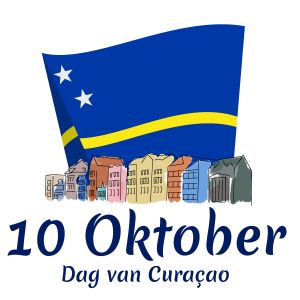Curaçao Day: Celebrating Cultural Heritage and National Identity
Curaçao Day is a significant annual celebration in the Dutch Caribbean island of Curaçao, commemorated on the 10th of October each year. This day holds immense cultural and historical importance for the people of Curaçao, as it marks a pivotal moment in their journey towards self-governance and the preservation of their unique identity.
Historical Context
The origins of Curaçao Day can be traced back to the constitutional changes that took place on October 10, 2010. On this date, the former Netherlands Antilles, of which Curaçao was a part, was dissolved. Curaçao and Sint Maarten became separate autonomous countries within the Kingdom of the Netherlands, while Bonaire, Sint Eustatius, and Saba became special municipalities.
This constitutional restructuring was a significant step towards granting Curaçao more autonomy and self-governance. It allowed the people of Curaçao to have greater control over their local affairs, such as governance, culture, education, and economy.
Significance of Curaçao Day
Curaçao Day is a day of remembrance, celebration, and reflection. It is an occasion for the people of Curaçao to honor their heritage, culture, and national identity. The day holds various meanings that are deeply ingrained in the hearts and minds of the island’s inhabitants.
1. Celebrating Autonomy and Self-Governance
Curaçao Day symbolizes the autonomy achieved by the island and its people. It marks the day when Curaçao took a significant leap towards self-governance and the ability to shape its own destiny. The celebration serves as a reminder of the journey towards political and cultural independence.
2. Preserving Cultural Identity
Curaçao is known for its rich and diverse cultural heritage, influenced by its indigenous, African, European, and Latin American roots among others. Curaçao Day provides an opportunity to showcase and celebrate this unique blend of cultures. Through various festivities, traditional performances, and cultural exhibitions, the island’s inhabitants and visitors can experience the vibrancy and beauty of Curaçao’s cultural tapestry.
3. Promoting Unity and National Pride
Curaçao Day promotes unity and national pride among the people of the island. It brings communities together, fostering a sense of camaraderie and shared identity. It is a time to reflect on the values that bind the nation and reinforce a collective sense of pride in being a part of Curaçao.
4. Educational and Historical Reflection
On Curaçao Day, educational activities and events are often organized to shed light on the historical, political, and cultural significance of the island. Seminars, exhibitions, and presentations are held to educate the population about their past and the challenges that have been overcome to attain the present state of autonomy.
Celebrations and Traditions
Curaçao Day is celebrated with a variety of events and activities across the island. These celebrations vary from year to year and usually include:
- Parades: Colorful parades showcasing traditional costumes, dance performances, and music, reflecting the diverse cultural heritage of Curaçao.
- Cultural Exhibitions: Displays of traditional arts, crafts, and culinary delights allow for a deeper understanding and appreciation of the island’s cultural heritage.
- Concerts and Performances: Live music concerts featuring local artists and traditional performances are organized to entertain and engage the community.
- Sports Events: Friendly sports competitions and events are held to promote physical activity and foster a sense of camaraderie.
- Educational Programs: Schools and educational institutions often organize special programs, presentations, and workshops focused on the history and culture of Curaçao.
Conclusion
Curaçao Day is a meaningful and significant celebration that encapsulates the island’s journey towards autonomy, the preservation of its rich cultural heritage, and the promotion of national unity and pride. It is a day of joy, reflection, and an opportunity for the people of Curaçao to come together, honor their past, and look forward to a bright future as a sovereign and culturally diverse nation within the Kingdom of the Netherlands.

